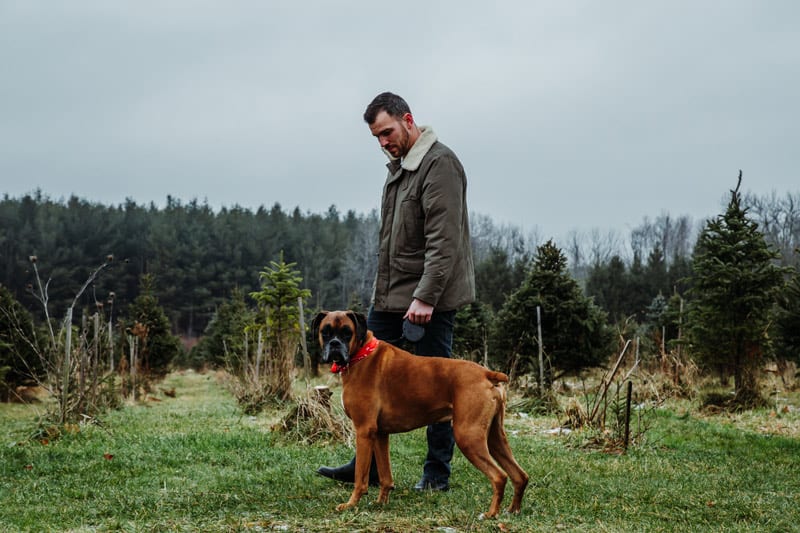Surviving a mental health crisis isn’t about hospitals and medications that dull your mind and senses. It’s about building a network of people around you to support you and talk with, and to know you well enough to see you’re heading down a bad path, with a lonely road ahead. If you’re lucky, they will look out for your wellbeing and do something to help you alter course and get back on track. It’s hard. Most of us have lost friends, maybe family, over our mental health issues and have no one to reach out to when we know something is wrong but can’t put a finger on it. That road leads us to further isolation, and it’s that isolation that makes it hard to come back from the brink.
I recall an incident that occurred when I was diagnosed with bipolar disorder (a diagnosis that has since changed). When I needed help to come to grips with the realization that my life would change forever, I lost the one person I counted on. Who could I turn to now? Anyone who suffers with bipolar disorder, schizoaffective disorder, or schizophrenia knows the ups-and-downs. I spent a long time in a mixed state, but when I lost my only support, I began to crumble; I sank as low as I could go. Life as I knew it was over. The career path I had chosen was no longer open to me. My wife left me, friends were lost, and when I was finally hospitalized, people I trusted ransacked my house and took everything of use to them.
That hospitalization lasted much longer than I expected. The hospital decided they couldn’t handle my case, and I was flown to another one and drugged into delirium. When I awoke, I was terrified. Not only was I alone, but I was also far from anything I found comfortable. I worried about who would take care of my dog. I was angry, lashing out at everyone, and I was put into a type of solitary confinement where I was guarded 24 hours a day and even watched as I went to the bathroom. I was labeled with a list of diagnoses by a cold, vapid doctor late at night when I was delirious from the medication, and I felt like an animal. As a side note, my case worker was forgetful enough to leave my file open and I saw he had written I was “about average” in intelligence. That stung. I had been told, and thought it my one redeeming character trait, that I was quite clever. Crazy and dumb. Wow. What was there to live for? I went to bed each night praying to whatever was above me that I would not wake up.
I wasn’t allowed to be around anyone else. I ate alone, except for the guard watching over me. He barely said a word to me; it was a living hell. I am not a very social creature to begin with, but knowing I was isolated because they thought I was a danger to myself or others was just saddening. I didn’t know what to think. Something in me knew I was there for a reason but I just couldn’t see why at the time. I began to act out in violent ways, proving I should be kept separated from others. I had nothing in my room except a bed, and the only chair was occupied by the guard most of the time. When he’d take me on my bi-hourly trip to the bathroom I’d pick up anything I could and throw, smash, or break it, which was followed by the inevitable injection to dull my senses and make me docile again. The one upside was I got to sleep. I would lay awake at home worrying about anything and everything. The nightly Toradol shots were a welcome relief. Sleep would come, or at least unconsciousness. It was my goal to be awake as little as possible. The Toradol shots became the only form of relief I looked forward to each night. My cup of pills was dessert. Somewhere in the back of my mind I knew if I could get through one day, I could get through another.
In the end, after some months I was deemed healthy enough to leave. It strikes me as odd that I had to jump through a lot of hoops to be seen as “better,” although nothing in my mind had changed. Sure, I got fewer pills and spent time around people in groups, but I still didn’t want to wake up, still wished life would just end. To live is to have something to look forward to, to laugh and to share. I didn’t have that. I felt like I was going through the motions to get the “all clear” to walk just so I could hear the click of the magnetic door locks and go home.
I was into self-harm from a young age, self-flagellation, cutting, and risky behavior. After the hospital, my methods changed, but I really went after myself. I was so numb and empty I needed something, anything, to feel at all. My pain tolerance was very high, making the damage to myself that much worse, and it wasn’t long before I was back in the hospital. I made it hard on the people around me. I would run to their apartment screaming “I’m going to hurt myself” or “I’m going to kill myself.” Then I’d go back to my apartment and absolutely destroy it. With Hulk-like strength, I broke walls, doors, and threw a couch across the room, smashing a TV and book cases. I was totally out of my mind. That led to hospitalization number three, less than four months after my release from the first.
Life after that got a bit better. My career was still over. I had no friends left and my family wouldn’t accept that there was something wrong with me. I would never be “normal.” But I was able to accept myself. I had inner peace and a realization that no matter how many labels they pinned on me, I was still a person, and some way, somehow, I mattered. I still didn’t feel I had much to live for most of the time; no one needed me except my dog. But I knew he had to eat and go outside a few times a day and I worked around his schedule. It gave me something to live for. I took my pills, accepted them, and was thankful to be at home, and my dog was always there to keep me company.
I remember my last doctor from the hospital. I continued to see him after my discharge, and he put me on a medication that had a side effect I’ll never forget: “sudden death.” I asked about it and he said: “why does it matter, you want to kill yourself anyway.” Those words changed me. I didn’t want to kill myself anymore.
I’m still here. I have a family, a couple of dogs, and cats. I’m not exactly happy; one of the diagnoses turned out to be accurate. I’m just not a person who feels much. I don’t hurt myself anymore. I do not intentionally do emotional damage to anyone else either. My lesson to share is simply this: One day at a time. Go to bed, and when you wake up, do whatever you can in a positive way, so you can make it through the day to go to bed and wake up again in the morning. If you can do it once, you can do it again… and again. And you’ll feel glad you’re here and the people around you will be glad to see you come out of your inner world to join them.
If you or someone you know experiences mental health issues, it is important to seek help from a qualified professional. Our Resource Specialist can help you find expert mental health resources to recover in your community. Contact us now for more information on this free service to our users.
Author Bio: Jeremy is a US military veteran who has suffered with mental illness his whole life. Now he spends his time trying to find ways to cope and share his experiences. He has four dogs and loves the outdoors.
Photo by Alora Griffiths on Unsplash
The opinions and views expressed in this guest blog do not necessarily reflect those of www.rtor.org or its sponsor, Laurel House, Inc. The author and www.rtor.org have no affiliations with any products or services mentioned in this article or linked to herein.
Recommended for You
- Why a Mental Health Retreat Can Transform Your Recovery Journey - December 11, 2025
- Laughter as Therapy: How Humor Supports Emotional Recovery - December 8, 2025
- When Teenage Stomach Pain Signals Anxiety: A Pediatric GI Doctor Explains - December 4, 2025






Thank you for this heartfelt story, full of soul and life. Your life and recovery journey are inspiring. Coming back from the brink to live your life on your own terms is a beautiful thing. My daughter is bipolar and won’t talk to me anymore, although she has been in a program and moving forward. I miss her dearly. Hearing your story helps me understand the difficult road of mental health issues. Prayers and hugs for you and your companion dogs.
Hello Susan.
I’m sorry to hear that you and your daughter do not communicate currently, I do hope in time things will change. From my experience, I’ve pushed people out of my life fearing they would reject me and in my mind, it was better to hurt myself then let them hurt me.
I’m honestly glad I was able to help someone understand the nightmare mental illness can be. You’re a testament that it’s not only the ill that suffer but those around them as well.